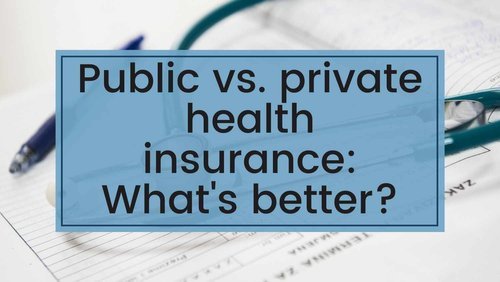When it comes to choosing health insurance, one of the primary considerations is whether to opt for private or public health insurance. Both types of insurance have their own advantages and limitations, making the decision dependent on individual needs and circumstances. This article explores the key differences, benefits, and drawbacks of private and public health insurance to help you make an informed choice.
What Is Private Health Insurance?
Private health insurance is a policy provided by private companies. It often comes with customizable options, allowing policyholders to choose plans tailored to their specific needs. Private insurance typically offers a higher level of coverage and faster access to healthcare services.
Benefits of Private Health Insurance
- Shorter Waiting Times: Private health insurance often provides quicker access to medical treatments and specialists compared to public healthcare systems.
- Customizable Plans: Policyholders can select coverage options that suit their lifestyle, including add-ons like dental and vision care.
- Access to Private Facilities: With private insurance, individuals can access private hospitals and clinics, often enjoying better amenities and personalized care.
- International Coverage: Many private insurance plans offer coverage for medical expenses incurred while traveling abroad.
Drawbacks of Private Health Insurance
- Higher Costs: Premiums for private insurance are generally more expensive compared to public insurance plans.
- Complexity: Understanding and choosing the right private insurance policy can be complicated due to the variety of options available.
What Is Public Health Insurance?
Public health insurance is funded and managed by the government, providing coverage to citizens and residents. It is often more affordable and accessible but may have limitations in terms of service quality and availability.
Benefits of Public Health Insurance
- Affordability: Public health insurance is typically more cost-effective, with lower premiums or no premiums at all.
- Universal Coverage: It ensures that everyone, regardless of income level, has access to basic healthcare services.
- Government Support: Public insurance programs are backed by the government, ensuring stability and reliability.
Drawbacks of Public Health Insurance
- Long Waiting Times: Due to high demand, public healthcare systems often have longer waiting periods for non-emergency treatments.
- Limited Choice: Patients may have limited options when it comes to choosing healthcare providers or facilities.
- Basic Coverage: Public insurance typically covers essential services but may exclude specialized treatments or advanced care.
How to Decide Between Private and Public Health Insurance
Choosing between private and public health insurance depends on several factors:
- Budget: Consider how much you can afford to spend on premiums.
- Healthcare Needs: Determine if you require specialized services or quick access to treatments.
- Location: Availability and quality of public healthcare services vary by country and region.
- Lifestyle: Frequent travelers or those with specific healthcare preferences may benefit from private insurance.
Conclusion
Both private and public health insurance have unique benefits and drawbacks. While private insurance offers flexibility and faster access to care, public insurance ensures affordability and universal coverage. Assess your personal needs, financial situation, and long-term goals to choose the plan that best aligns with your requirements. Remember, the right health insurance is an investment in your well-being and financial security.


